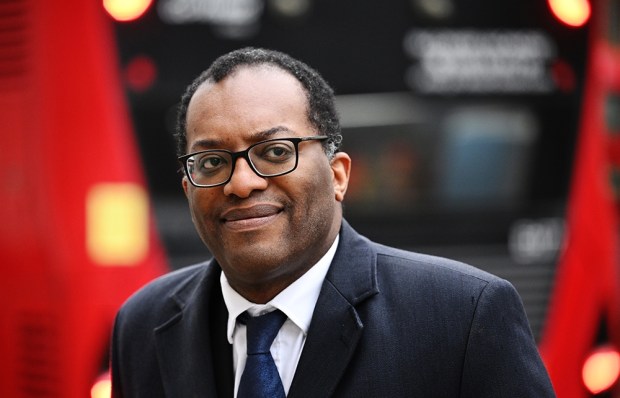There were a million people who voted Labour in the 2005 general election but not in 2010, when the party fell from a 66 majority to 48 seats behind the Tories. Thanks to the Lib Dems’ spiteful rejection of boundary changes that would have helped their coalition partners, the 2015 poll is already rigged in Labour’s favour by about 30 seats, so the number of floaters who have to be won over to give Miliband and Balls a working majority is likely to be well down in six digits rather than seven. No doubt Labour’s pollsters know how many to the nearest thousand, and have them segmented and profiled to the last housing estate.
Not many are likely to be business leaders, wealth creators, tax economists, Today listeners or Spectator readers. But as one of the party’s gurus explained to me gleefully last week, those million-minus are the only people Ed Balls needs to talk to. He doesn’t give a toss what the rest of us think of him — being hated by true blues actually helps his mission. And he doesn’t have to come up with sensible, costed policies. He just has to reach out to the electoral slice — thinner than the iceberg lettuce in the national Big Mac — that has the power to put Labour back in Downing Street. Since this obviously can’t be done by talking about their record in power, and ‘the cost of living crisis’ is rapidly running out of road, he and the other Ed think the path to victory is to persuade their chosen audience that Tories, banks, energy companies and people who prosper by their own efforts are all part of an evil conspiracy to keep everyone else poor.
And that of course is the entire rationale behind his pledge to restore the 50p top rate of income tax. Pointless to debate whether the move would ‘bring the deficit down quicker’, because surely not even Balls himself believes it would. Pointless to shout — as Digby Jones and others have done — about discouraging inward investment and entrepreneurship, because he’s not listening. The whole issue of taxing incomes above what many experts regard as the revenue-maximising 40p top rate introduced by Nigel Lawson in 1988 has only ever been about low politics and tokenism.
When Alistair Darling announced, in November 2008, a 45p top rate on incomes above £150,000, to come into effect in April 2011, the Institute for Fiscal Studies said it would raise ‘approximately nothing’ and might even have a net negative impact. Four months later — with defeat ahead a racing certainty as Labour’s poll rating slumped to 29 per cent — Darling upped the rate to 50p and brought it forward to April 2010, barely six weeks before the general election.
It was a trick to embarrass the Tories in power, when they would naturally want to cut the rate again but could not do so without accusations of favouring the wealthy; the equivalent of leaving a different kind of floater when you think the bailiffs are about to call. How Balls must be laughing as we play his game by debating the 50p rate as though it’s a serious proposition to improve the nation’s finances: it’s really just a targeted tweet that says ‘vote for us and kick the filthy rich’.
Final solution for RBS
The grim news that RBS is heading for a pre-tax loss of up to £8 billion, after another pile of claims and penalties for mis-selling mortgage-backed paper, PPI and interest-rate hedges, throws more light on the departure last summer of its former chief executive Stephen Hester.
Earlier in the year it was rumoured he had fallen out with George Osborne, who was eager to be able to announce a return of RBS to the private sector before the next election. For reasons now clearer than ever, Hester kept telling him that wasn’t possible. Combined with the fat-cat, fox-hunting, bonus-greedy media profile Hester was never able to shake off, hostile signals from Downing Street made his position untenable.
His successor Ross McEwan — a lean retail banker from New Zealand who insiders say combines careful listening with firm decisions — has kept his head down so far, and sensibly declared before he was asked that there would be no bonuses for his top executive team this season. He has also been wise to deflect questions about whether taxpayers will ever get their £45 billion of bail-out money back. The truth is they probably won’t, but some time after 2015 they might get a cleaned-up and diminished bank that has abandoned global adventurism and returned to a useful role in the domestic economy. They might even get several such banks, because I still believe (despite Miliband and Balls apparently agreeing with me) that the best and perhaps in the end only solution to the RBS problem will be a radical break-up.
Global talent
The death of 51-year-old Derby-born Tata Motors chief Karl Slym, who fell from the 22nd-floor window of a Bangkok hotel, is a personal tragedy that has yet to be explained. But his life story illustrates vividly the globalisation of the auto industry since the 1980s. A bright British production engineer like him might once have spent his working life at strike-torn Longbridge or Cowley, building ill-designed cars with zero export prospects. Slym, in contrast, started his career learning the ‘Toyota Way’ of lean manufacturing at the Japanese company’s then brand-new UK factory at Burnaston near his home town. He took his skills to General Motors plants in former East Germany and Poland in the 1990s, and later to Canada and to joint ventures in South Korea and China. Finally he joined Tata, the Indian conglomerate that is one of the most progressive forces in the sector as the creator of the ultra-cheap Nano city car for its home market and owner of renascent Jaguar Land Rover abroad.
This is an industry that — at least outside the United States, where protectionist instincts still rule — has abolished national boundaries and allowed talent to flourish. Karl Slym was one of its up-and-coming best.
Got something to add? Join the discussion and comment below.
Get 10 issues for just $10
Subscribe to The Spectator Australia today for the next 10 magazine issues, plus full online access, for just $10.
You might disagree with half of it, but you’ll enjoy reading all of it. Try your first month for free, then just $2 a week for the remainder of your first year.














Comments
Don't miss out
Join the conversation with other Spectator Australia readers. Subscribe to leave a comment.
SUBSCRIBEAlready a subscriber? Log in